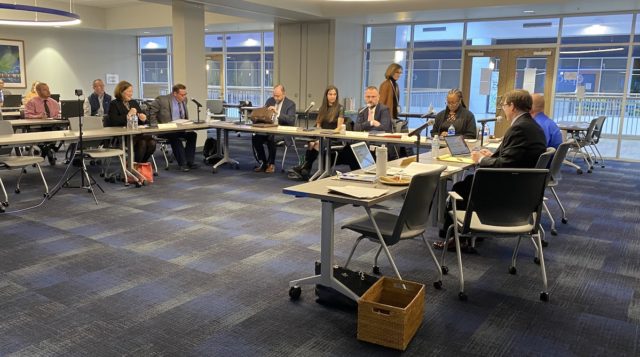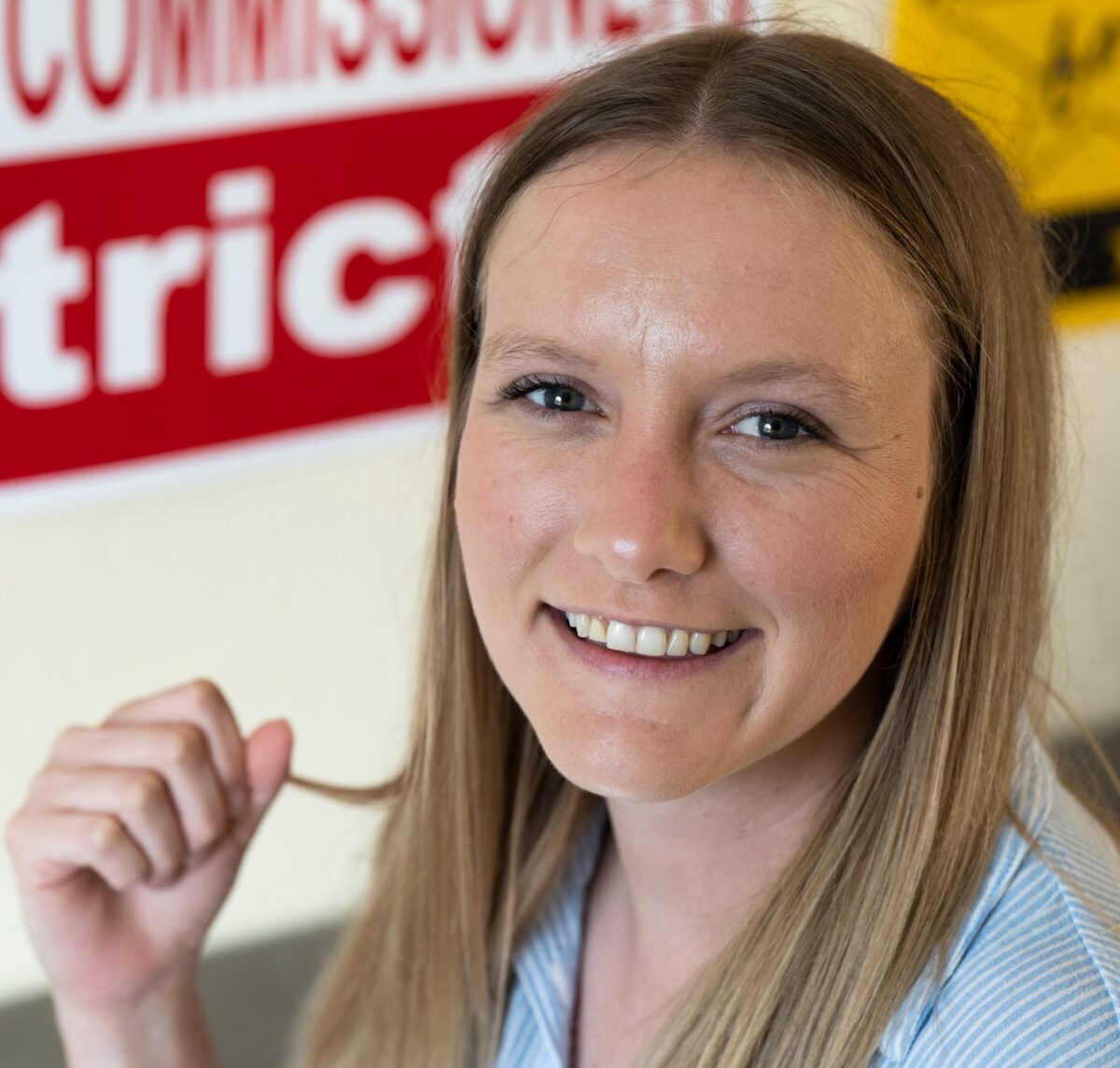
Epic Charter Schools Board members approved the consolidation of the Epic One-on-One and Epic Blended school districts at their meeting Wednesday evening. Epic Superintendent Bart Banfield said the move could result in $4 to $8 million in savings owing to lower charter authorization fees, technology fees and personnel time savings and efficiencies.
The plan must be approved by the State Department of Education.
“The consolidation is going to accelerate our ability to provide every Epic student with a holistic education that meets their individual needs,” Banfield said during the meeting. “Epic teachers and staff have been operating two school districts at the same time for years. The consolidation will not change anything we do or the way we serve students. Rather, it will provide new and innovative pathways for teaching and learning. Epic will be able to serve students and families in a more efficient and effective matter.”
Epic One-on-One serves about 23,156 students and currently has its charter sponsored by the Statewide Virtual Charter School Board. Epic Blended, which serves about 15,178 students, is authorized by Rose State College. Under the consolidation plan, the SVCSB, which oversees all virtual charter schools in the state, would be the charter authorizer for the merged Epic districts.
The Oklahoman reported that the SVCSB showed support of the consolidation plan at a meeting in February. SVCSB Chairman Robert Franklin said that he feels the plan is in the best interest of their stakeholders.
Following executive session at the Wednesday meeting, Epic board members also voted to drop an appeal in a lawsuit involving former Oklahoma Sen. Ron Sharp (R-Shawnee).
Epic sued Sharp in December 2019 for libel and slander after Sharp had been publicly critical the charter schools, alleging the schools had inflated student enrollment numbers and misused taxpayer dollars. However, Oklahoma County District Court Judge Cindy Truong dismissed the lawsuit in February 2020, later fining Epic $500,000 under the Oklahoma Citizens Participation Act, which outlines sanctions for filing meritless lawsuits.
Epic had previously told The Oklahoman that it planned to appeal the fine with the Oklahoma Supreme Court.
The charter schools have been under state investigation for years owing to allegations of embezzlement and the enrollment of “ghost students.”
“We all feel strongly that we have to be role models here,” Epic Board Chairman Paul Campbell said during the meeting. “The prior management company and some of the former school employees were guilty of a lot of things. But, in terms of this case, I don’t see the merits of the school’s appeal onto the State Supreme Court and I would like for us to consider a motion to drop the appeal.”
Legislation aimed at charter school oversight
The SVCSB and Rose State were criticized for their oversight of the Epic schools in a report released by the State Auditor & Inspector’s Office in October 2020, following an investigative audit of Epic released.
The audit revealed that Epic, the schools’ co-founders Ben Harris and David Chaney and their private management company Epic Youth Services owed the state millions of dollars for excessive administration costs and co-mingling public funds with Epic’s endeavors in California. Charter authorizers keep 3 percent of any state funding received by their charter school as an administrative fee.
The SVCSB threatened to terminate its charter authorization with Epic last year, but a settlement agreement between the charter authorizer and Epic One-on-One ended termination proceedings.
According to a report from Oklahoma Watch, State Auditor Cindy Byrd provided her audit findings to the Internal Revenue Service and FBI and Epic’s finances are currently under investigation by the IRS. The IRS informed Campbell by letter on Jan. 14 that it will look at a variety of documents to determine whether Epic has accurately reported revenue expenses, operated appropriately under its nonprofit tax status and has a governing board that is adequate at preventing and identifying asset loss.
Documents requested by the IRS for review include board meeting minutes from 2015 to the present, bank statements from June 2018 though July 2019 along with other financial documents and a list of all board members and their terms served since the organization’s inception.
The Oklahoma State Bureau of Investigation recently completed an investigation into the charter schools, which has been turned back over to Oklahoma County District Attorney David Prater.
The 2022 legislative session has seen bills regarding charter reform advance through education committees.
SB 1621, authored by Senate Education Committee Chairman Sen. Adam Pugh (R-Edmond), would create the Statewide Charter School Board and place every charter school in the state under its purview.
Rep. Sheila Dills’ (R-Tulsa) has presented three charter-related bills. HB 3643 would update requirements for the governing boards of virtual charter schools that contract with educational management organizations to create greater transparency for state funds. HB 3644 would update oversight requirements for charter school sponsors and governing boards. HB 3645 would update attendance polices for virtual schools.
Board approves two new members
Two new board members, Ed Long and Trevor Hammons, were also approved during Wednesday evening’s meeting. Carrie Irvin with Education Board Partners presented the candidates to the board.
“Doing board recruiting well takes a lot of time and a lot of thought,” Irvin said during the meeting. “Initially, recruiting for this board presented a set of challenges, given the frequency with which your news media likes to cover this school. The track record and the vision of this board that is in place now has and will make recruiting so much easier. You are now a board that people want to join.”
According to LinkedIn, Long is chief impact officer at MetaFund, an investment firm in Oklahoma City, co-founder of Oklahoma Impact Accelerator and founder and principal of Cross Sector Innovations. From 2013 to 2016, Long served as chief communications officer for the Oklahoma Health Care Authority.
During the meeting, Irvin said that Long has experience on other nonprofit governing boards, experience in communications policy and college teaching experience.
Hammons is a practicing attorney, parent of a former Epic student and a citizen of the Cherokee Nation. Irvin said he has extensive experience working with the state and on public boards and is a strong believer that high-quality education can change lives, particularly for rural and Indigenous students.
“I’ve had the chance to interview both candidates and the thing that stands out to me is that both of them fill pretty significant holes we have on this board from my perspective,” Campbell said. “I would define holes as our board and our school have to mirror our community. The fact that one out of every four students is a Native student means we need to have that kind of perspective on the board.”






















